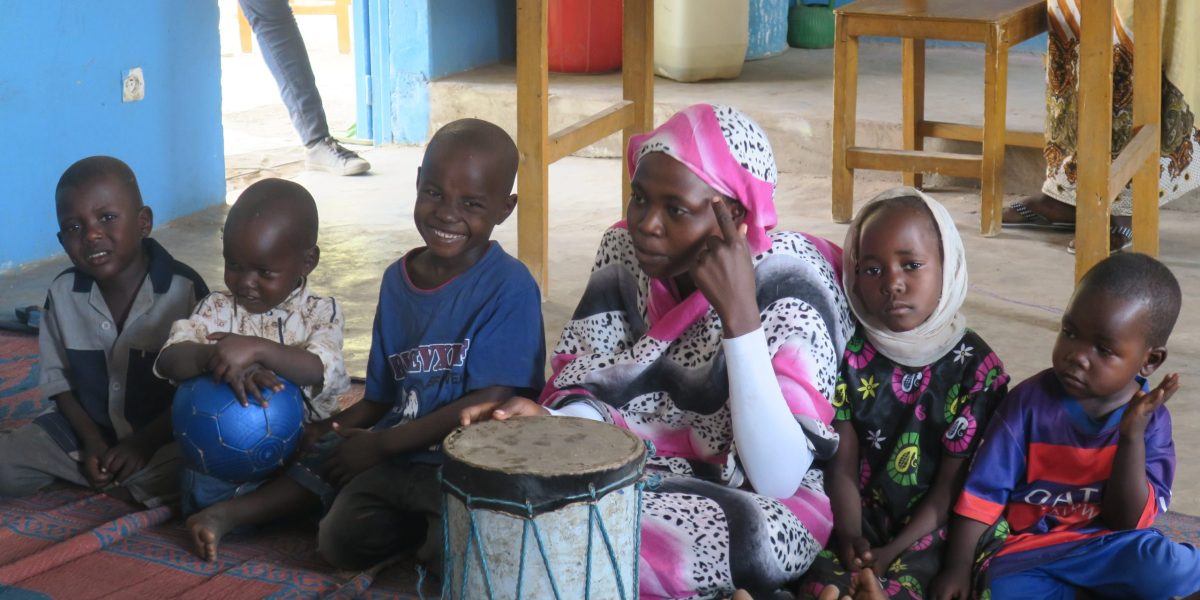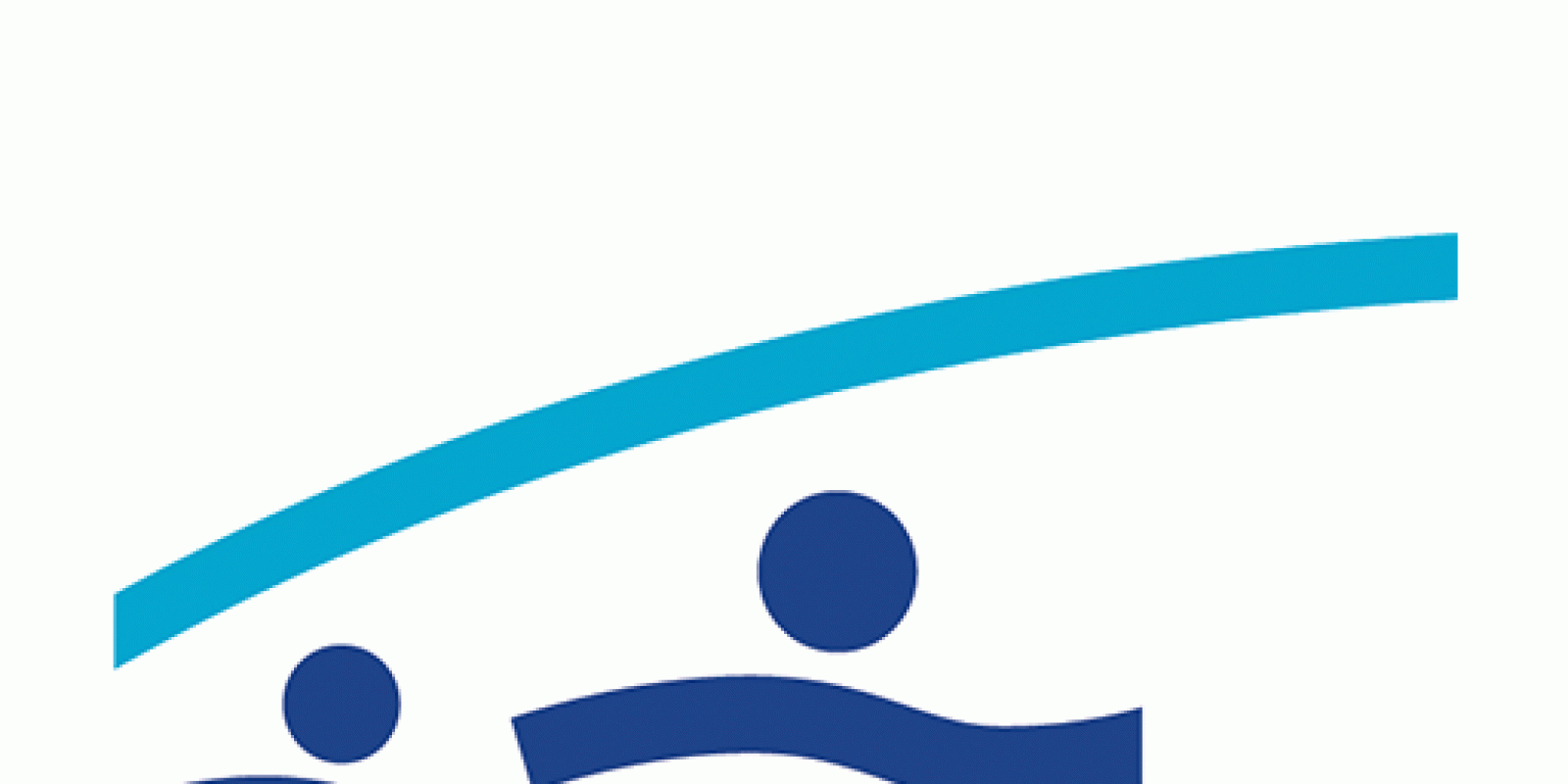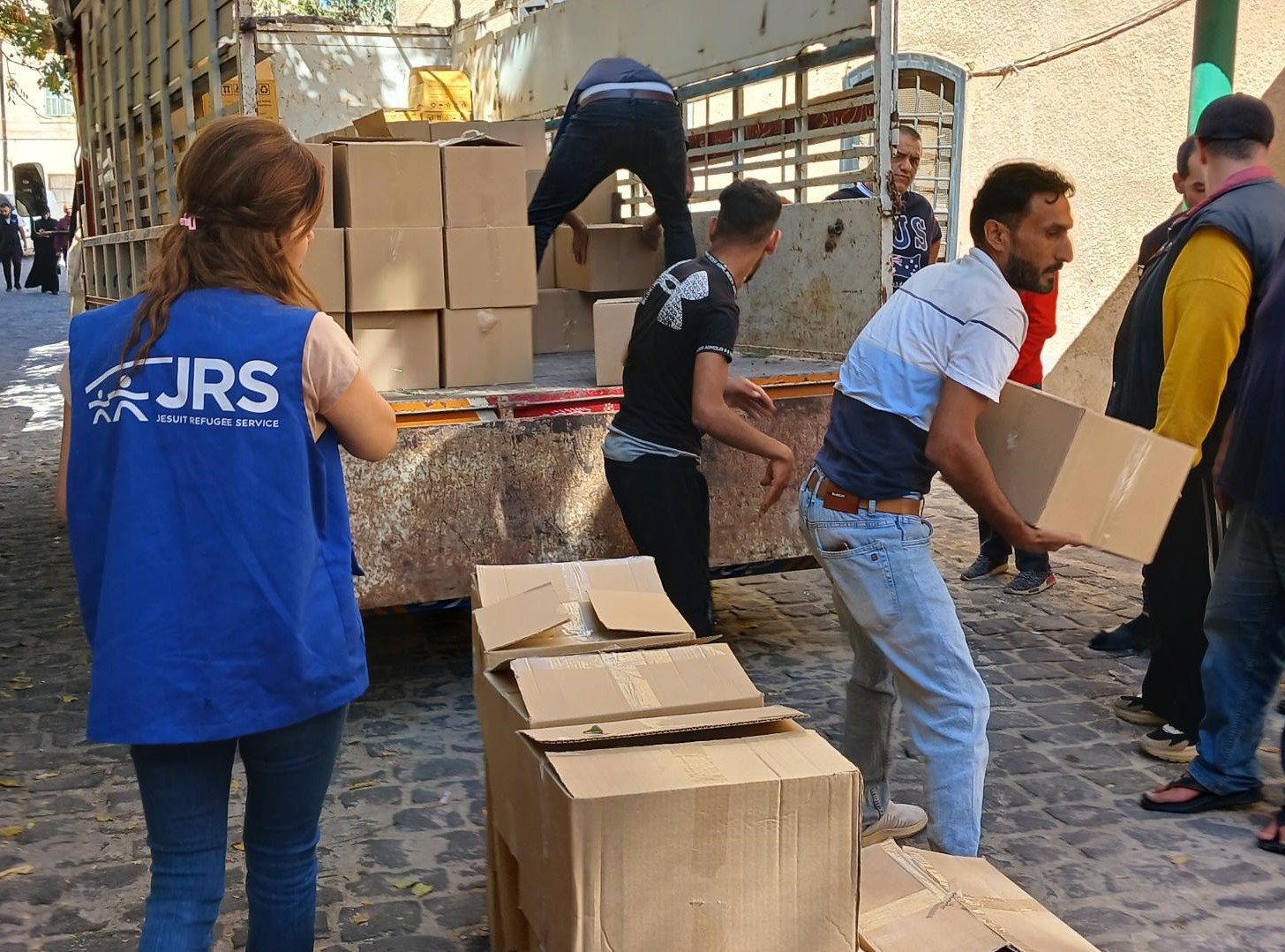JRS INSIDER: Preschool Power in Refugee Communities
04 September 2024|Chloe Gunther

This story first appeared in JRS INSIDER, a monthly newsletter including stories of impact across JRS global.
Each morning, around 7 a.m., across Chad, Cameroon, and the Central African Republic (CAR), the dedicated instructors of Little Ripples preschools arrive at their centers. Thirty minutes later, their young students—ages 3 to 5—file in, and a day filled with poetry, music, stories, and play begins.
For this edition of INSIDER, we spoke with the Little Ripples director, a branch manager, and an education supervisor to learn more about what makes this program unique and profoundly effective.
Little Ripples is a refugee-led early childhood education initiative that brings classrooms to children. Ten years ago, its parent organization, iACT, whose mission is to resource and partner with communities impacted by war and conflict, partnered with JRS to open more classroom doors in Chad, Cameroon, and CAR. Like JRS, whose programs employ refugees and host community residents, iACT believes in local solutions – shifting power and ownership of programs to those most affected. In Catholic social teaching, this is referred to as subsidiarity, meaning a central or larger authority should support but only perform those tasks which cannot be handled effectively at a more immediate or local level.
 Today, many refugees arriving in Chad come from Sudan, CAR, and Cameroon. When forced to flee, families often do so under life-threatening circumstances, enduring the pain of leaving behind everything they know. Children are torn from their classrooms, communities, and support systems and amid this turmoil, access to education is often sidelined until some semblance of safety is restored.
Today, many refugees arriving in Chad come from Sudan, CAR, and Cameroon. When forced to flee, families often do so under life-threatening circumstances, enduring the pain of leaving behind everything they know. Children are torn from their classrooms, communities, and support systems and amid this turmoil, access to education is often sidelined until some semblance of safety is restored.
JRS and iACT both recognize how crucial it is to maintain access to education for refugee children, helping them develop and prepare for their futures.
Aziza Ahmat Adoum, the director of Little Ripples Preschool Centers for iACT, is a refugee herself, having fled Sudan. She began her work as a Little Ripples instructor in 2018. Like all the program’s staff and instructors, Aziza is a member of the community she serves.
The community-led model is a key reason for Little Ripples’ success says Masrabaye Emmanuel, an education supervisor at the JRS Iriba office. Little Ripples actively identifies leaders within refugee communities to become instructors. Those who meet the qualifications go through an application process, including exams and interviews, then complete training courses to integrate social, emotional, and cognitive learning into their classrooms. Little Ripples’ educational approach is evidence-based, contextually-adaptive, and play-centered.
“I believe the community’s involvement in creating the program has made it easier for them to understand and fully engage, ensuring its success in the camps,” Masrabaye said. “Everything is done within and by the community, giving them a sense of purpose and belonging as they improve their children’s lives.” And because instructors are members of their refugee communities, they know best how to respond to the experiences their students have endured and serve as role models.
Support for instructors is continuous. Aziza highlighted the biweekly staff meetings where they discuss student progress, tackle challenges, and introduce new or enhanced programs.
“We put children at the heart of decision-making, focusing on their social, emotional, cognitive, and physical development,” said Masrabaye.
He recalled a special moment in the Touloum Refugee Camp: “I was happy to see a three-year-old girl confidently reciting a long poem she had memorized. It was a proud moment of success.”
JRS Branch Manager Zakaria Hissein Hassan, who started as an education supervisor in 2016, notes that the impact of the program is exemplified once students graduate from Little Ripples. “Children from iAct’s preschool centers consistently perform the best in their primary schools,” he observed.
Masrabaye also highlighted how Little Ripples empowers the refugee community to recognize the importance of education. “My favorite part of the job is helping parents understand the value of their children’s education. It’s rewarding to see the community so engaged and eager to support the program.”
Despite ongoing challenges, including limited resources, Little Ripples continues to open classroom doors for vulnerable children. As we celebrate the 10-year partnership between iAct and JRS, Little Ripples serves as a model for expanding access to early childhood education in refugee camps. As its name suggests, the program is a powerful testament to how community-led efforts can create sustainable change, one community at a time.
Masarabaye said: “A typical day includes playing games, laughing together, and listening closely to their instructors with the aim of going back home having learned something. This allows them to believe that tomorrow will be even better.”
A reminder – and hope – we can all take to heart.


